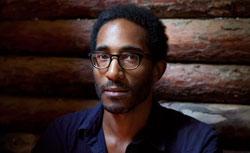The first piece of sound advice Troy Patterson has to offer the contemporary man is to consider looking elsewhere for sound advice. We insist that you first bend the ear of your oldest friend, or your kindest clergyman, or your suavest uncle, or your least aggrieved ex-girlfriend. These traditional founts of wisdom remain your best guides to leading a life that is no more devoid of meaning than anyone else’s.
But! Should those well-tested sources of counsel be found wanting, Gentleman Scholar will always try to present exquisitely sensible solutions to the myriad puzzles attendant to masculinity. Let’s please discuss ancient points of protocol and postmodern perversions of mores. Let’s talk about drinking and dining and seeing and being seen and friendship and courtship and sportsmanship and gamesmanship. The art of conversation, the craft of correspondence, the science of wolf-whistling for a cab—all these balls are fair, and we aim to cover more ground than a spry middle infielder.
Gentleman Scholar will always try to be sensible, and inevitably it occasionally will fail, which is no big deal, for we believe with Montaigne that the journey matters more than the arrival. Our advice may not always be the most superlatively sound, but we dream of making it the most attractive sounding—the most superlatively stylish—which is no small thing, for we believe with Buffon that style is the man himself. The columnist, more foxlike than hedgehoggish, will approach some problems proscriptively and others descriptively. He will speak to the fashionable fellow who wants to know the least undignified way to slurp overpriced ramen at a cramped table he waited two hours for—and also he will speak to the lad who wants to dress up the Styrofoam bowl of noodles he is wearily extracting from the microwave for the fourth consecutive night. He will sometimes edit and condense interviews with specialists, and he will sometimes elaborate ex cathedra pronouncements. The columnist is even willing to bypass foxiness and hedgehoghood to become a guinea pig: You want to know if it is possible to teach a 38-year-old how to drive a stick shift? I’ll give it my best shot, provided that my expense budget is sufficient to cover the repair of whoever’s gears it is I’ll be stripping.
Gentlemen, serve up your questions, and I will volley answers in a variety of styles. Some will aspire to the crisp contexualizing clarity of Slate’s Explainer; some will offer the plainspoken, no-nonsense advice of Dear Prudence (though even more adverbially); some will attain the shape and scope of self-indulgent personal essays; some will approximate monosyllabic grunts. If you don’t ask, that’s fine, too, because this is the kind of advice column that puts its own rhetorical, leading, open, trick, and philosophical questions in the mix: What is love? And what’s a good off-the-registry gift for a friend who claims to be in it? When do you not wear an evening suit to an evening wedding? If the wedding’s in the afternoon, what time should you ice the beer for the hotel-room after-after-party? And if your hosts, in designing the seating chart, place you at the “artsy-people” table at the reception, with which fork would you most correctly stab yourself in the head? Et cetera.
If, looking into these matters, I can see further than anyone, I should be quite surprised. But the giants on whose shoulders I am standing include the Millicent Fenwick who wrote the 1948 edition of Vogue’s Book of Etiquette (“Men’s manners, like their clothes, should be unobtrusive.”) and the P.J. O’Rourke who wrote The Bachelor Home Companion, with its fine lines on cured pork (“Bacon can be made to cook itself if you light it with a Zippo”) and milk-fed calves (“Veal is a very young beef and, like a very young girlfriend, it’s cute but boring and expensive”). Other relevant texts include: The autobiographies of Benjamin Franklin, Frederick Douglass, and Ashley Blue, plus all of F. Scott Fitzgerald’s books. Sigmund Freud’s Psychopathology of Everyday Life, Matthew B. Crawford’s Shop Class as Soulcraft, G. Legman’s Rationale of the Dirty Joke, the Fragments of Heraclitus, the Mortality of Christopher Hitchens, M.F.K. Fisher’s How to Cook a Wolf, Playboy’s Host and Bar Book, Consumer Reports How to Clean and Care for Practically Anything, the revised edition of Beer Games 2, and—a book that sometimes falls into one’s hands, by domino effect, after one applies the teachings of Beer Games 2—Dr. Harvey Karp’s The Happiest Baby on the Block.
That last one is a favorite among the current crop of kid-fuck-uppers, a group I groggily count myself among. The column has a special interest, a very, very special wittle intewest, in exploring topics related to child-rearing, such as judging other parents for letting their brats range around free as organic chickadees at Sunday brunch. I promise not to overdo it—as a rule, my son is better seen than heard about—but the hands-on business of doing daddy things with a 2-year-old is unquestionably Troy Patterson’s greatest—and, some days, only—area of competency. Not kidding; ask my editors or my creditors or the saint from whom my 2-year-old inherited his movie-star eyes. But I think I can engineer some personal growth with the column, starting with its second installment, which has two themes, one dating to ancient Rome (Mens sana in corpore sano) and the other to the Stone Age (G, middle C, C, A, G, middle C …)
First, though, we will turn to sartorial matters, learning how best to button our shirts by studying two transformational figures—the American architect hailed for writing the most important book on design since Le Corbusier’s heyday and an Italian playboy whose style attracted the affections of Rita Hayworth, Anita Ekberg, and the former Jacqueline Bouvier. And after that? Well, that’s up to you.
Please send your questions for publication to gentlemanscholarslate@gmail.com. (Questions may be edited.)
